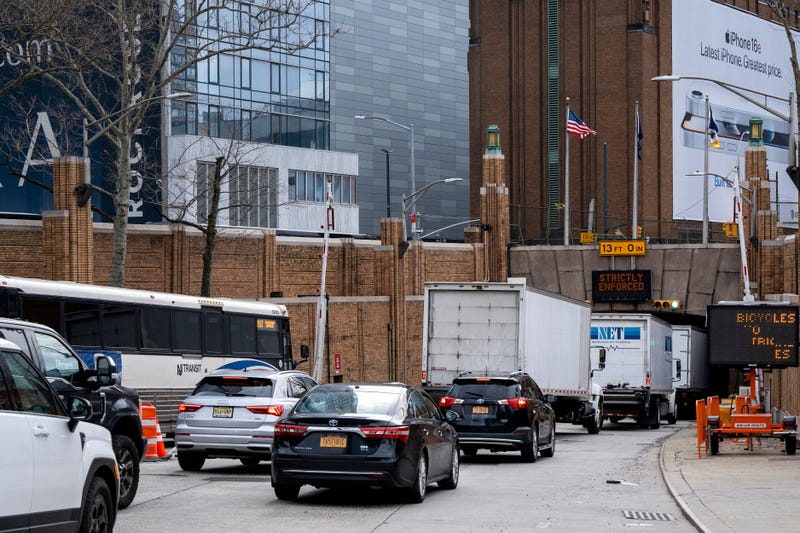
NEW YORK (BLOOMBERG) -- The MTA entered into a $500 million loan agreement with a group of investors that’s backed by congestion pricing revenue as the Trump administration tries to end the tolling program, according to a loan document.
The operator of the city’s subways, buses and commuter rails closed the tax-exempt deal on May 2, the document posted on the Municipal Securities Rulemaking Board’s website said. The floating-rate borrowing is expected to cost the agency about $20 million in interest and matures in one year, according to court documents filed in MTA’s lawsuit that seeks to continue congestion pricing.
The transit agency anticipates repaying the loan with the toll receipts or proceeds from a long-term bond sale that’s backed by that revenue source. That debt issuance is expected to price late this year or in early 2026. The MTA began charging drivers on Jan. 5 to enter parts of Manhattan and transit officials have said the program needs about a year of revenue collections before issuing long-term debt.
Interest on the $500 million loan is based off of the SIFMA Index plus a spread, according to the loan agreement. The amount of that spread and also the financial institutions involved in the borrowing were redacted from the loan agreement.
The MTA and US Department of Transportation are battling over the legality of the toll, which is the first of its kind in the nation. Transportation Secretary Sean Duffy in February withdrew federal approval of the toll that had been granted under the Biden administration. The MTA quickly filed suit to declare Duffy’s actions as invalid.
Duffy has ordered the MTA to end the toll by May 21 or risk losing approvals for other transportation projects and possible federal funding. The transit agency late Monday filed a preliminary injunction to stop Duffy’s threats.
The loan will help finance the MTA’s capital infrastructure needs. The transit agency has borrowed $1.4 billion, including the $500 million loan, that it expects to repay with proceeds from the anticipated congestion pricing bonds, according to court documents.
Congestion pricing raised $159 million in the first three months of the program and is expected to provide $500 million, after expenses, this year.
Most motorists pay the $9 congestion pricing fee during peak hours to enter Manhattan’s central business district, which runs from 60th Street to the bottom of the island. The MTA implemented the toll to reduce traffic, improve air quality and raise $15 billion through bond sales to modernize the city’s aging transit system.
More stories like this are available on bloomberg.com.
